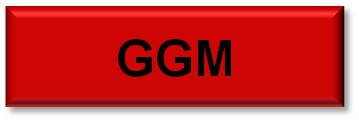1. No swearing
2. No food, beverages, or gum chewing
3. No smoking, chew, drugs, or alcohol in the
school
4. No jewelry (exception- wedding bands/rings)
5.
No street shoes allowed in workout area
6. Horseplay will not be tolerated
7. No unauthorized sparring or weapons training allowed
8. Students using weapons without permission will be warned only once.
9. No loss of temper or control will be tolerated.
10.
Any injury no matter how
slight shall be brought to the attention of an instructor
11.
Any hazardous condition
shall be brought to an instructors attention
12. If you use equipment, put it away where it
belongs.
13. You are responsible for anything broken /
damaged as a result of your actions.
14. Aster each class, training gear shall be put
away, don’t leave it for the instructor to put away.
15. Instructors reserve the right to issue
penalties or remove violators for the safety of others.
16. This is a learning training area. We are all
here to learn, do your part to make it a clean, and safe environment. Don’t
leave it for someone else to do.
17. Persons using equipment last is responsible
for putting it away.
18.
If you notice anything in
bad repair bring it to an instructors attention.
19. No shoes or sticks will be used against bags, shields, or focus mitts.
20. No piercing motions by sticks against
kicking bags or shields with sticks or staffs permitted.
21. No swinging or hanging on kicking bags.
22. Lifting of heavy weights (in excess of 100
pounds) shall require a spotter.
23. Advanced students shall own, maintain and
properly wear uniform at all classes.
24. No pur4rposely dropping of weights will be
tolerated.
25. All house rules & regulations will be strictly enforced at all
times.
26. Time spent in class is knowledge for you, so
make the best use of your time. 27. The
most important rule is: if you don’t understand – ask- no question is a dumb
one except the one that wasn’t asked.
IF
YOU DON'T WANT TO FOLLOW THE RULES- WE DON'T WANT YOU HERE
*NOTE:
ANYONE FOUND TO HAVE BEEN FIGHTING INSIDE OR OUTSIDE OF CLASS WILL BE SUBJECT
TO EXPULSION FROM THE SCHOOL.
Originally
there wasn't a uniform or belt rank in Kuntaw or any Filipino martial art. As
the arts were not associated with schools or organizations. Father taught son,
brother taught brother, neighbor taught neighbor. In 1966 the Philippines
competed in the Asian Games and opted to join the rank and file of world
martial arts associations. They adapted a traditionally styled karate type
uniform, which was green trimmed in white. Belt ranks were systemized and
actively promoted. In 1975 the International Kuntaw Association changed the art
to more actively compete in the Karate based tournaments. Mr. Smith chose to go
with the Filipino Martial Arts Association uniform of black vest / black pants.
This uniform was changed in 1995 to be more acceptable to karate tournaments
and female students.
Any
loose fitting clothing may be used in practicing Kuntaw when one is a beginner.
Preferably black. Generally no uniform is required for the beginning student.
This is because the students are sampling an art that they may or may not want
to stay with. An investment in a formal uniform that they will never use again
is a waste of money. Upon the students acceptance of the art (third month of
training) they should obtain a uniform. However the Kuntawista must wear the designated
uniform once they have attained their first rank in Kuntaw.
The uniform is worn with pride for which the
Kuntawista is and whom they represent, thus the uniform should reflect this
feeling. The standard Maharlika Kuntaw
Uniform is a black karate top with a red band on the sleeves and black
pants. The AMKA emblem is worn on the
left side, over the heart. Any larger affiliation emblem is worn on the left
sleeve to the front of the crease. No other crest or writing may be displayed
on the uniform. If you are serious to become one with the art you must look the
part. During competitive events the full dress uniform is to be worn a black
vest can be worn when practicing or competing in weapons. Black muscle shirts are worn under the vest
for women.
The
black leather vest was historically worn by the Spanish Foreman with a white
shirt underneath, this signified authority to the Filipinos. When the Spanish
were rousted the Filipinos felt that no one was better than another so they
adopted the use of the vest to signify that they were just as good as anyone
else and that everyone was created equal.
If a student
of another system attends class either as a guest or as a registered student
he/she may wear the uniform and rank of their other club / class or they may
wear appropriate Kuntaw class dress.
1. Should be kept clean and pressed
2. Should be mended if damaged
3. Will not be covered with unauthorized patches or writing
4. Ranked students are required to wear their uniform to
class or any other function deemed
necessary
5. The uniform consists of a short sleeved Black Karate type top
with a 1 1/4 inch red band on the
sleeve cuff, and black karate type pants (muscle "T"women only)
6. Traditionally, Philippine Martial Arts did not have a
belt rank system, however in recent Philippine Martial Arts History, there was
a rank system developed. In keeping with
both traditions all students are
required to wear their belt to class. For all other functions (competition, demos.
etc.) Belts will be worn unless
specified differently.
.

The colors of the patch: Signify the
colors, which are on the Philippine flag - Red, White, Blue, and Yellow.
The Red Circle: The circle / sphere of personal
influence. This represents the area in
which the Kuntawista influences another person or is influenced by another. For
example: if you had a stick in your hand your influence would reach as far as
the tip of the stick extended, if you had a gun your influence would be as far
as the bullet can travel. It is the distance
in which you can influence another or another can influence you. The sphere is
generally within arms reach to 5 feet. Once someone enters that range they may
be influencing you.
8 Large Rays:
Signify the 8 Provinces that rebelled against Spain.
The 8 angles of attack
The 8
directions in which flow can travel
The 8
directions in which the art of Kuntaw has traveled
The 8
directions of force & balance
1 Large & 2 Small Rays:
Signify the 3
main weapons - mind, hand and foot - of Kuntaw.
The 3 main
arts, which Kuntaw is comprised of - Kali, Pentjak Silat, Shaolin Ssu Kempo
The 3 main
Filipino arts of Kuntaw - Buno, Bugtongan, Sikaran
The 3 areas from which the art came from - India,
China, Indonesia
The 3 ranges -
largo, sumbrada, hubud
The 3 altitudes
- air, standing, and ground
Signifies
knowledge triangle - Knowledge, Skill & Wisdom.1st must attain the
knowledge then must attain the skill to use it, then you must have the wisdom
to know when to use it.
Signifies the
3 main islands of the Philippines
- Luzon, Mindanao & Visayan.
Signifies the
Godhead father, son, Holy Ghost
Yin & Yang:
The symbol of
great balance Yin is the red fish with the white eye, the negative aspect and
action Yang is the white fish with the red eye, the positive aspect and
action. They continually flow one to
another, where one ends the other begins.
There will always be a little of one in the other
This applies
to you as a student to train your mind as well as your body
To develop
defensive and offensive techniques / skills
To be able to move
in or away




























